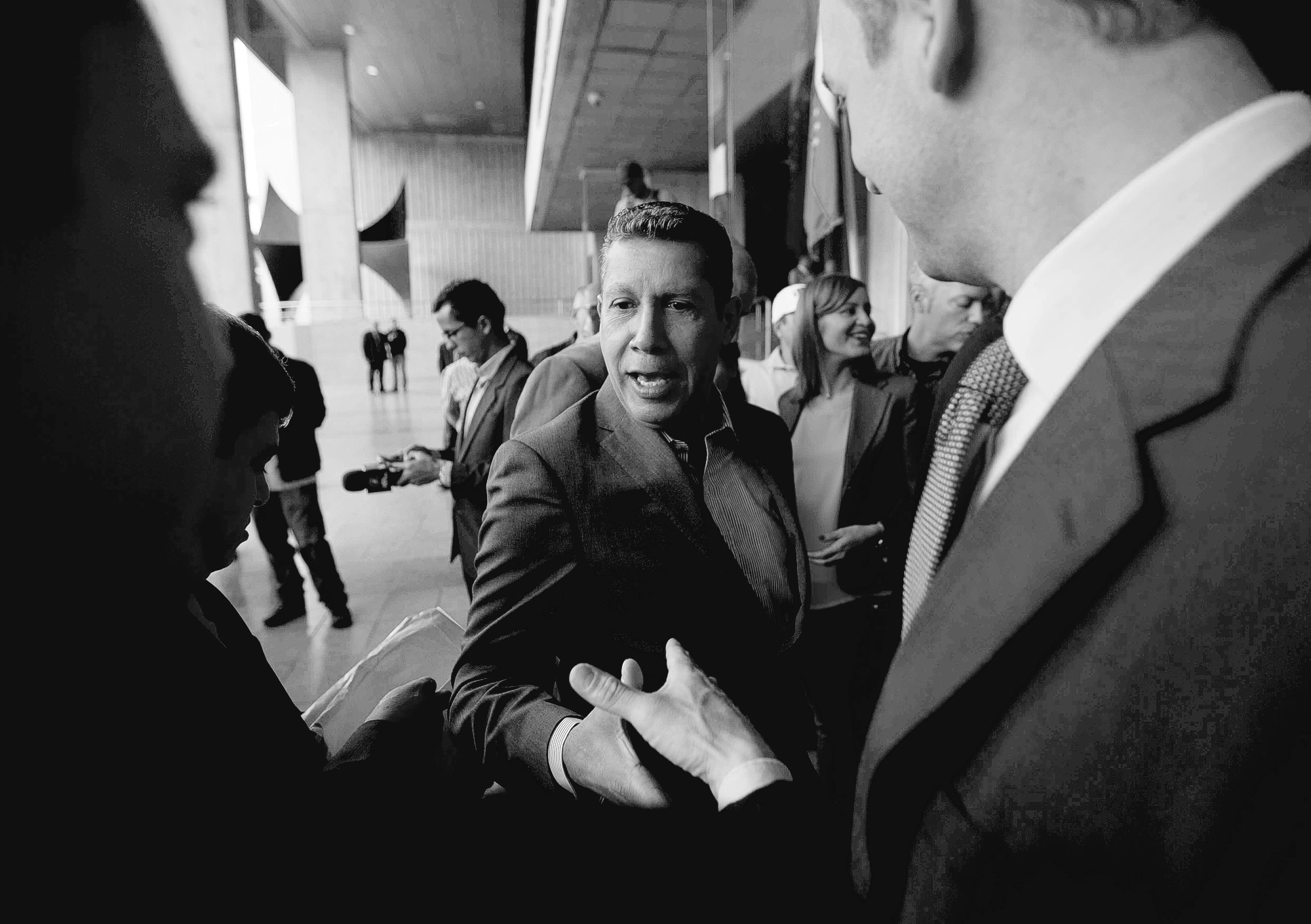
Associated Press
CARACAS, Venezuela (AP) — The man who finished second in Venezuela’s recent presidential election asked the nation’s Supreme Court on Wednesday to order a new vote, citing deep flaws in the process that extends leader Nicolas Maduro’s time in power. The challenge by Henri Falcon came on the same day that Canada registered its protest of the widely criticized vote by imposing sanctions on first lady Cilia Flores and 13 other people linked to the government. Falcon argued that Maduro’s ruling socialist party unfairly influenced the election by setting up kiosks near voting centers and giving poor residents bonuses.
“Those elections did not exist,” Falcon said. “They must be declared null.” But the appeal is unlikely to prosper in the Supreme Court, stacked with Maduro loyalists. Official results showed Maduro winning a second six-year term in a landslide victory on May 20 despite a historic crisis in the once-wealthy OPEC nation marked by food and medicine shortages sending masses into exile. Many nations have criticized the vote as unfair and international pressure has been mounting. Canada on Wednesday hit Flores and other Venezuelan officials with sanctions, condemning the election as illegitimate and anti-democratic.
The measure essentially bans Canadians from doing business with targeted Venezuelans. “These sanctions send a clear message that the Maduro regime’s anti-democratic behaviour has consequences,” said Chrystia Freeland, Canada’s minister of foreign affairs, adding her country’s commitment to defending human rights and rejecting Venezuela’s “fraudulent presidential elections.” The U.S. earlier responded to the vote by expanding its own list of sanctioned Venezuelans, though that list doesn’t include Flores.
Maduro’s government had banned Venezuela’s most popular opposition parties and politicians from participating in the election, and in turn the opposition coalition urged voters to boycott the election. Falcon broke with the opposition to launch his independent candidacy. The United States, European Union and several Latin American also rejected the election, saying tactics by Maduro’s government reveal its slide toward authoritarian rule. Cuba’s newly installed President Miguel Diaz-Canel, however, visited Caracas on Wednesday and congratulated Maduro, reaffirming strong ties between their two nations.
“We feel that victory as our own,” Diaz-Canel said speaking in a nationally televised broadcast from the pro-government National Constituent Assembly. He added that Cuba maintains “unwavering” support for Maduro. Diaz-Canel rejected international criticism of Venezuela’s electoral process, saying he recognized its the legitimacy because the people chose its government. The Cuban leader took office last month, taking over from Raul Castro. It is Diaz-Canel’s first official visit to Caracas. He is expected to meet with his Venezuelan counterpart in the Miraflores presidential palace.



















